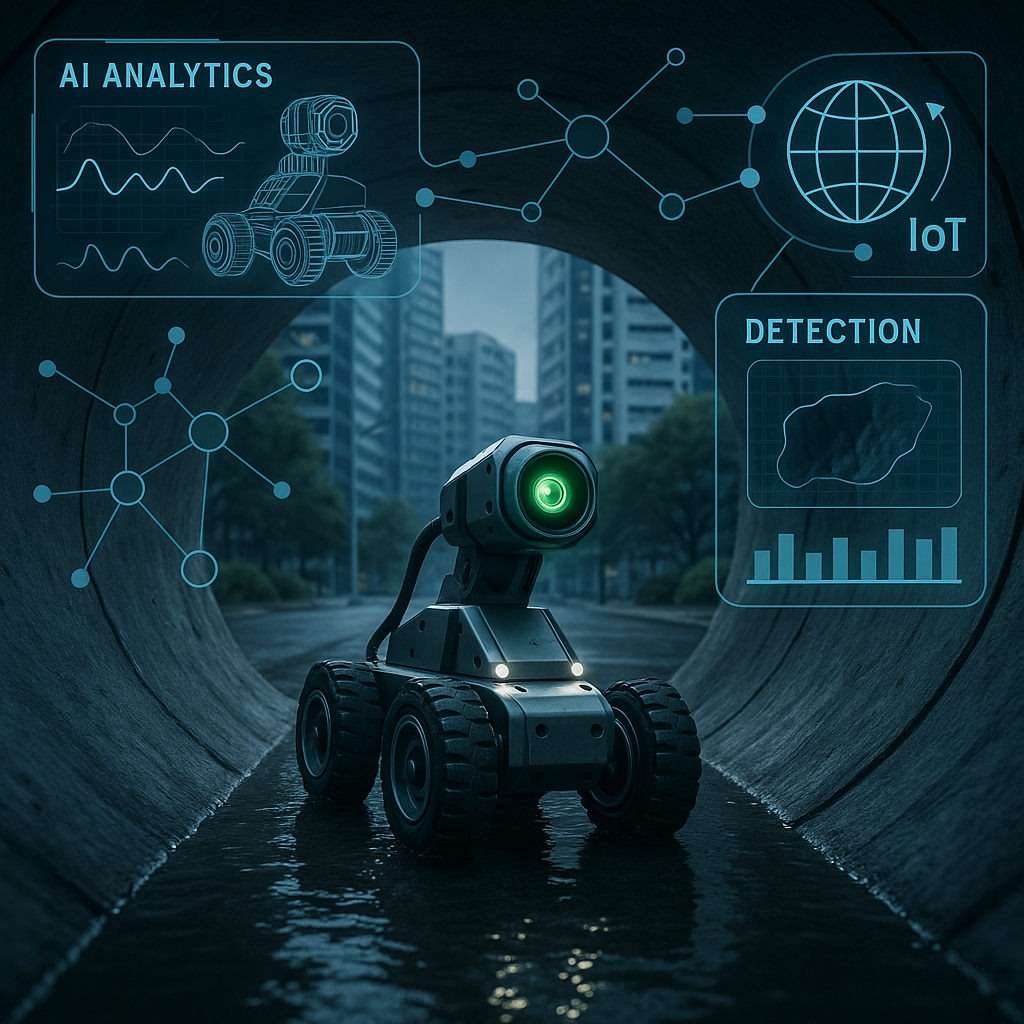Revolutionizing Sewer Line Maintenance: 2024 Guide
Explore the latest in sewer line maintenance with AI, robotics, and IoT for safer, efficient, and sustainable operations.

Revolutionizing Sewer Line Maintenance: 2024 Guide
In 2024, the sewer inspection and maintenance industry is undergoing a transformative phase, driven by technological innovations, stringent regulations, and a heightened focus on sustainability and safety. This comprehensive guide delves into the latest procedures and technologies redefining sewer line maintenance.
Table of Contents
- Introduction
- Technological Innovations in Sewer Maintenance
- Regulations and Standards
- Market Trends and Business Opportunities
- Safety Protocols and Best Practices
- Practical Tips for Sewer Line Maintenance
- Conclusion
Introduction
The sewer line maintenance industry in 2024 is marked by a dynamic interplay of technology, regulation, and market demand. With infrastructure aging and urbanization on the rise, businesses must adapt to new maintenance paradigms that prioritize efficiency, sustainability, and safety.
Technological Innovations in Sewer Maintenance
Robotics and Autonomous Systems
Advanced crawler robots equipped with high-definition pan-and-tilt cameras and AI-powered defect detection are revolutionizing sewer inspections. These robots can autonomously navigate through sewer systems, minimizing human exposure to hazardous conditions.
- Accuracy and Reach: Robots provide high precision in detecting defects such as cracks and root intrusions.
- Safety Enhancement: Reduce the need for manual entry into confined spaces.
AI and Machine Learning
AI algorithms now analyze video feeds in real-time, identifying structural issues with up to 97% accuracy. This capability supports predictive maintenance, enabling early intervention before issues escalate.
- Predictive Maintenance: AI-driven insights help prevent significant failures and costly repairs.
- Efficiency: Faster and more accurate assessments compared to traditional methods.
IoT and Smart Monitoring
The integration of IoT in sewer systems allows for real-time condition monitoring, facilitating proactive maintenance and reducing downtime.
- Remote Monitoring: Extensive pipeline lengths can be monitored from single access points.
- Data-Driven Decisions: Continuous data transmission aids in informed decision-making.
Advanced Sensors and 3D Mapping
Technologies such as ultrasonic, electromagnetic, and laser scanning offer non-destructive testing (NDT) capabilities, providing detailed structural assessments.
- Enhanced Assessment: Go beyond visual inspections to detect hidden issues.
- 3D Mapping: Create detailed representations of sewer conditions for better planning.
Cloud-Based Data Management
Cloud platforms are essential for storing, analyzing, and sharing inspection data, supporting predictive analytics and infrastructure management.
- Data Accessibility: Easy access to historical and real-time data.
- Collaboration: Facilitates collaboration among stakeholders through shared data insights.
Regulations and Standards
Increasingly stringent environmental regulations are pushing the adoption of advanced inspection technologies. Compliance is enhanced by digital record-keeping and real-time hazard detection, promoting safer working conditions.
Market Trends and Business Opportunities
- Growing Demand: The market for mobile sewer inspection systems is expanding due to aging infrastructure and urbanization.
- Sustainability Focus: Eco-friendly plumbing solutions are gaining traction.
- Investment Potential: The sewer maintenance market is projected to exceed $9.2 billion.
Safety Protocols and Best Practices
Adoption of remote inspection technologies significantly reduces worker exposure to hazardous conditions.
- Use of Gas Detectors: Ensures hazards are identified and managed proactively.
- Digital Logs and Real-Time Feeds: Enhance safety and efficiency.
Practical Tips for Sewer Line Maintenance
- Regular Inspections: Schedule routine checks to identify potential issues early.
- Leverage Technology: Utilize AI and robotics to enhance inspection accuracy.
- Training and Compliance: Ensure staff are trained in the latest safety protocols and technologies.
- Cost Management: Balance initial investments with long-term savings from predictive maintenance.
Conclusion
The future of sewer line maintenance lies in the integration of cutting-edge technologies and sustainable practices. By embracing these advancements, businesses can achieve greater efficiency, safety, and environmental responsibility.